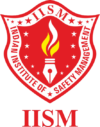The Advantages of Pursuing an Advanced Diploma in Industrial Safety
In today’s rapidly evolving industrial landscape, ensuring the safety of workers and maintaining a secure work environment is of paramount importance. As a result, professionals with expertise in industrial safety are in high demand. One effective way to acquire comprehensive knowledge and practical skills in this field is by pursuing an Advanced Diploma in Industrial Safety. This article explores the benefits of undertaking such a program, highlighting the career opportunities it offers and the valuable insights it provides to create safer workspaces.
Understanding Industrial Safety
Before delving into the advantages of an Advanced Diploma in Industrial Safety, it is crucial to grasp the significance of this discipline. Industrial safety involves identifying potential hazards, implementing preventive measures, and promoting a safety-conscious culture within an industrial setting. It encompasses various areas, including risk assessment, emergency preparedness, occupational health, and regulatory compliance.
Gaining Comprehensive Knowledge
An Advanced Diploma in Industrial Safety equips students with comprehensive knowledge related to workplace safety. The program covers essential topics such as hazard identification and risk assessment, safety regulations and standards, industrial hygiene, fire safety, and emergency response protocols. Through theoretical coursework and practical training, students gain a deep understanding of potential risks and effective strategies for mitigating them.
Enhancing Career Prospects
Earning an Advanced Diploma in Industrial Safety opens up a wide range of career opportunities. Industries such as manufacturing, construction, oil and gas, transportation, and healthcare value professionals with expertise in industrial safety. Graduates of this program can pursue careers as safety officers, safety supervisors, safety consultants, risk assessors, and compliance managers. The demand for skilled professionals in this field is steadily increasing due to strict regulations and the growing focus on workplace safety.
Promoting Workplace Safety
One of the significant advantages of obtaining an Advanced Diploma in Industrial Safety is the ability to create safer work environments. Armed with the knowledge and skills gained from the program, professionals can identify potential hazards, develop safety protocols, and implement preventive measures to minimize risks. By promoting workplace safety, these individuals contribute to the well-being of employees, prevent accidents and injuries, reduce operational costs, and enhance overall productivity.
Networking and Professional Development
Pursuing an Advanced Diploma in Industrial Safety offers opportunities for networking and professional growth. Students have the chance to interact with experienced professionals, attend seminars and workshops, and join industry associations. Engaging in such activities facilitates the exchange of knowledge, allows for exposure to emerging trends and best practices, and helps build a strong professional network that can open doors to new career opportunities.
Conclusion
An Advanced Diploma in Industrial Safety provides individuals with a comprehensive understanding of workplace safety, enhancing their career prospects and enabling them to create safer work environments. This specialized program equips students with the knowledge and practical skills needed to identify and mitigate potential hazards, comply with safety regulations, and respond effectively to emergencies. By pursuing this diploma, professionals can contribute to the well-being of employees, ensure regulatory compliance, and add value to organizations across a range of industries. Embracing the field of industrial safety is not only beneficial for individuals but also crucial for building a safer and more secure working environment.
FAQs on Advanced Diploma in Industrial Safety:
Question 1: What is an Advanced Diploma in Industrial Safety?
Answer: An Advanced Diploma in Industrial Safety is a specialized program designed to provide individuals with comprehensive knowledge and practical skills related to workplace safety. It focuses on identifying potential hazards, assessing risks, implementing safety measures, and complying with safety regulations in industrial settings.
Question 2: Who can benefit from pursuing an Advanced Diploma in Industrial Safety?
Answer: This diploma is suitable for individuals who are interested in pursuing a career in industrial safety or professionals already working in the field who want to enhance their knowledge and skills. It is also valuable for supervisors, managers, and safety officers responsible for ensuring a safe working environment.
Question 3: What are the career prospects after completing an Advanced Diploma in Industrial Safety?
Answer: Graduates of an Advanced Diploma in Industrial Safety can explore various career paths in industries such as manufacturing, construction, oil and gas, transportation, and healthcare. They can pursue roles such as safety officers, safety supervisors, safety consultants, risk assessors, and compliance managers. The demand for skilled professionals in this field is increasing due to heightened focus on workplace safety.
Question 4: What topics are covered in an Advanced Diploma in Industrial Safety program?
Answer: An Advanced Diploma in Industrial Safety covers a wide range of topics essential to workplace safety. These may include hazard identification and risk assessment, safety regulations and standards, industrial hygiene, fire safety, emergency response protocols, safety audits, incident investigation, and safety management systems. The program typically combines theoretical coursework with practical training.
Question 5: How long does it take to complete an Advanced Diploma in Industrial Safety?
Answer: The duration of an Advanced Diploma in Industrial Safety program can vary depending on the educational institution and the mode of study (full-time or part-time). On average, it may take around one to two years to complete the program. However, some institutions may offer accelerated options or flexible study schedules to accommodate the needs of working professionals.







